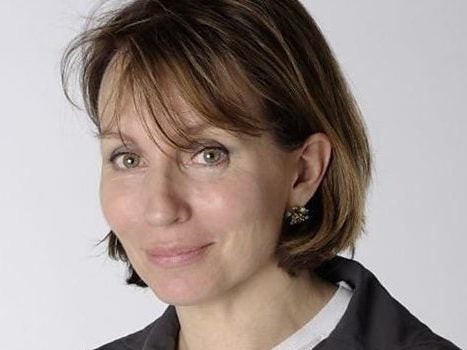
Former Today editor Sarah Sands told the House of Lords that the BBC is “institutionally statist” but also defended the corporations approach to impartiality.
She was one of three former senior BBC editors giving evidence at virtual hearing of the House of Lords Communications and Digital Committee on Tuesday.
Speaking about her three years editing the program up to 2020, Sands said: “It tended to be [that] a story would be a crisis, which could often be solved by more government spending, for instance.”
Despite its alleged in-built tendency toward a big state, Sands said she “found impartiality to be a very, very serious thing. Absolutely embedded. Both in theory from when I arrived, I think that the first person I met was the person in charge of editorial policy guidelines… I would say [impartiality] certainly struck me as a core obligation of the BBC.”
She was not sure how the “statist” aspect of the BBC should be addressed.
“It’s just, probably, an awareness, that you have to think of the institution that you work for… a lot of people have worked there an awfully long time. There practically isn’t quite the diversity of experience that would give you a different perspective.”
Another witness to the committee, former BBC editorial director Roger Mosey criticised how impartiality had sometimes been carried out, saying: “I think during the Brexit referendum, there was a rather robotic impartiality that wasn’t very helpful in terms of guiding people to facts… Impartiality doesn’t mean being bloodless or passionless. You have also to give expert judgment on the issues of our time.”
Mosey said that in the run up to the UK referendum on leaving the EU: “I think that the overwhelming arguments of economists on Brexit was that Britain would be poorer outside the EU and I think there were times when Kamal Ahmed on the BBC and Robert Peston on ITV said that. But it didn’t really filter into as much coverage maybe as it should have done.”
Mosey also voiced concern that the BBC’s dispersal of staff away from London was not sufficient to counter a perceived slant toward the UK capital.
“It’s really, really important that ideally, news board members should be in regions, and you really want to hear that Manchester has overruled London, rather than the other way round. And it’s still a case of almost all decisions feeding their way back to a small piece of real estate in W1A.”
The third witness, former director of the BBC World Service Richard Sambrook, told the committee that “impartiality is always a work in progress” and that it is “often subjective”.
He said: “What you think is impartial may not be what I think is impartial. And even the Ofcom code has a degree of subjectivity in it where it recognises the importance of audience expectations into how due impartiality is applied.”
Due impartiality, Sambrook said, is “a flexible standard, in a sense. It’s also widely misunderstood in public debate as being about false balance, or about covering up your political opinions. Or you know, bland, ‘he said, she said’ journalism. Actually impartiality, properly employed, is the reverse of that. It’s a set of professional disciplines to elevate your journalism beyond personal bias and beyond those kinds of problems.”
Sambrook said he believed the BBC does carry out the necessary reflections on its impartiality: “It thinks about it and reviews it and develops its approach to it constantly.”
Despite his views on the flexibility of impartiality, Sambrook said he thought it would be a mistake for the BBC to chase the casual tone of social media.
“The social media environment is not particularly conducive to traditional public service journalism. It’s strident, it’s argumentative, it’s often abusive, it has a very casual tone, there’s rising activism.
“BBC journalism needs to stand apart. And if it’s differentiated, it’s more valuable”.
In May 2020, Newsnight lead presenter Emily Maitlis said in an opening monologue to the show that that Dominic Cummings, then adviser to Boris Johnson, had “broken the rules” with his notorious trip to Barnard Castle, and that “the country can see that, and it’s shocked the Government cannot”. The BBC quickly distanced itself from Maitlis’ comments, saying the comments “did not meet our standards of due impartiality”.
Maitlis told Press Gazette in July that she did not regret the incident, saying “It hasn’t ever been explained to me what was journalistically inaccurate about that.”
Claims of bias have continued since. Only days after Davie made his speech, the BBC’s complaints unit ruled that BBC Europe editor Katya Adler had broken impartiality rules when she tweeted that Michael Gove was “delusional” for the minister’s claim that Covid would “concentrate the minds of EU negotiators”.
A Press Gazette Freedom of Information request found that in the first year following Davie’s appointment, the BBC formally disciplined four journalists over its social media guidelines banning “virtue-signalling”.
Email pged@pressgazette.co.uk to point out mistakes, provide story tips or send in a letter for publication on our "Letters Page" blog
